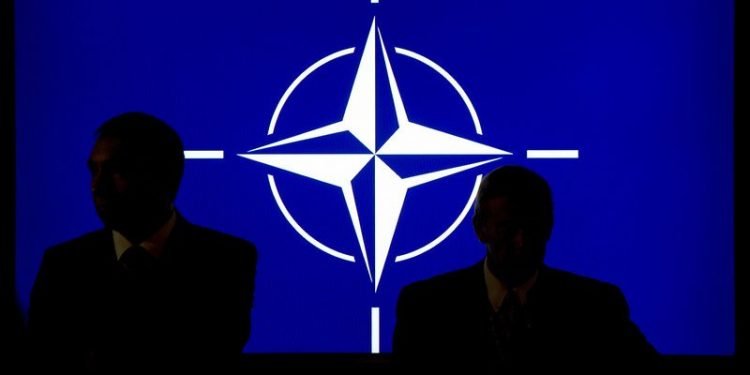Belgium (Brussels Morning Newspaper), The discussion primarily revolved around the proposed European Defence Industry Programme (EDIP) as a means to bolster the European military-industrial complex.
European Union leaders convened on 21 March to engage in a significant debate regarding the financing of the bloc’s defense industry, in response to Ukraine’s needs and the European ambition to establish itself as an independent security actor.
Funding Shortfall, while EDIP proposes €1.5 billion in funding, there is a consensus among leaders that significantly more resources, around €100 billion, are necessary to make a substantial impact. This raises the critical issue of identifying additional sources of funding.
Eurobonds Controversy, although reshaping the European Investment Bank’s (EIB) policy is considered feasible, there is contention regarding the issuance of Eurobonds, with some EU members expressing reluctance due to concerns about legalities and economic implications.
Exploration of Funding Sources, EU leaders are exploring various innovative solutions to augment defense funding, including tapping into €3 billion in revenues from Russia’s sanctioned assets. However, concerns persist among some member states regarding the legality of this approach.
Frugal Countries’ Opposition Several frugal EU countries, including Germany, Denmark, Sweden, the Netherlands, Austria, and the Czech Republic, are cautious about the Eurobonds idea due to concerns about economic slowdown, ongoing pandemic recovery loans, and the absence of a clear legal proposal.
Role of European Investment Bank, there is widespread support for involving the European Investment Bank more extensively in defense financing, with calls for the bank to expand its role beyond sponsoring dual-use products.
Utilization of Frozen Assets, some EU countries advocate for using the revenues from Russia’s frozen assets to finance Ukraine’s defense modernization and military aid. However, consensus on this matter is yet to be reached pending further discussions on legal implications.
Preparedness Union, EU leaders are also expected to endorse the Finnish proposal for a ‘Preparedness Union’, aiming to enhance the continent’s overall security preparedness. Former Finnish Prime Minister Sauli Niinistö has been tasked with assessing the bloc’s civilian and defense preparedness by autumn.
The debate among EU leaders underscores the pressing need to address the funding gap in Europe’s defense industry. While there is broad agreement on the necessity of additional resources, disagreements persist regarding the most viable funding mechanisms. The discussions highlight the complexity of balancing economic concerns with the imperative of bolstering European security in the face of evolving geopolitical challenges. Further deliberations and negotiations are anticipated as leaders strive to chart a coherent and sustainable path forward for the continent’s defense sector.
The EU and Ukraine Advance in Forging Forward with Transport Cooperation and Solidarity Lanes.
In a recent high-level meeting held in Kyiv, the European Union and Ukraine reaffirmed their commitment to bolstering the Solidarity Lanes and advancing cooperation in transportation connectivity, safety, and sustainability.
The third installment of the EU-Ukraine Transport Dialogue highlighted concerted efforts to maintain the flow of Ukraine’s exports and imports through the Solidarity Lanes while prioritizing improvements in connectivity, safety, security, and sustainability.
Commissioner for Transport Adina Vălean emphasized the burgeoning cooperation between the EU and Ukraine, particularly on the Solidarity Lanes, which serve as vital logistic routes facilitating Ukraine’s trade activities. Commissioner Vălean underscored ongoing initiatives to integrate Ukraine’s transport network with that of the EU, leading to a significant surge in commercial exchanges.
Amidst global disruptions caused by Russia’s aggression against Ukraine, both parties recognized the imperative of enhancing Ukraine’s connections to the world. The establishment of Solidarity Lanes in 2022 played a pivotal role, enabling Ukraine to export 126 million tonnes of goods worth €47 billion and import 47 million tonnes of goods valued at approximately €96 billion.
Discussions during the meeting extended to addressing challenges related to transport safety and security, with a focus on regulatory alignment, sharing best practices, and expertise exchange. Moreover, cooperation in reducing transport emissions and dependency on fossil fuels was emphasized, aligning with broader sustainability objectives.
Both the EU and Ukraine expressed their continued commitment to advancing Ukraine’s integration into the Transport Community Treaty, underscoring their mutual aspiration for deeper collaboration in the transport sector.
The ongoing collaboration between the EU and Ukraine signifies a concerted effort to bolster Ukraine’s resilience in the face of geopolitical challenges while advancing broader regional connectivity and economic integration goals.
By prioritizing transport safety, security, and sustainability, the EU and Ukraine aim to foster a more robust and environmentally conscious transport ecosystem, conducive to long-term economic growth and prosperity.
The EU-Ukraine Transport Dialogue serves as a testament to the enduring partnership between the two entities, with a shared commitment to enhancing transport infrastructure, fostering trade resilience, and promoting sustainable development. As both parties continue to navigate evolving geopolitical dynamics, their collaborative efforts in the transport sector stand as a beacon of stability and progress in the region.




